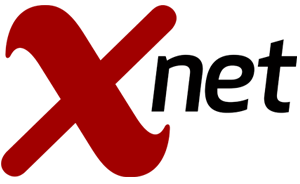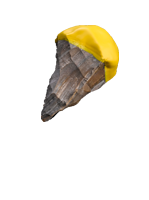In preparation for the second annual conference of KolDor - a grassroots global network of young Jewish leaders committed to forging and acting upon a new global Jewish agenda - members were asked to answer a questionnaire probing central issues to today's Jews. Below are some of the survey's responses.
What does Jewish Peoplehood mean to you?
Overwhelmingly, the primary answer related to a sense of community, of the collective. There was a very strong image of a global Jewish people, of local communities and of individuals belonging to a whole, often described as belonging to a family. It was presented as existing alongside and superseding the divisions and diversity of the Jewish world in terms of nationhood, language, and religious position.
"Peoplehood" was also frequently linked to identity, primarily a global identity, as an almost inherent psychological common denominator. It was described as tribalism occasionally, as an ethnic identity.
The link to the past, to a common history and heritage, was also evident. It was frequently described as a patrimony, a tradition, as well as a common destiny.
The modern meaning of peoplehood involved remembering, transmitting and developing our traditions and history, preserving and developing moral and ethical principles, of participating in local communities. Education and dialogue were also mentioned but in general, it would seem that it is more associated with a feeling that "Kol Yisrael arevim ze le ze" (Jews are responsibe for one another) than with specific actions or a concrete structure.
Responses generally did not stress religion as being at the core of Jewish peoplehood. A respect for religion and a shared religion in the past were certainly cited, alongside the occasional mention of participation in some religious and ritual practices. One KolDor member from the U.S. said, "We are not a religion, as is so erroneously thought."
Nor was Zionism, the Hebrew language, aliyah or settling the land of Israel frequently cited by respondents as the meaning of Jewish Peoplehood. Rather, the impression gained is that many share the idea that peoplehood is not a religion or nationhood but a "third dimension" that goes beyond the divisions of Israel and the Diaspora, the religious and the secular, Orthodox and Reform.
However, as KolDor member and Ynetnews contributor Einat Wilf writes in "Mitzvot of Peoplehood," if peoplehood is to become the new Jewish identity, "it must have content and depth. It must go beyond who we are, to become what we must do."
The questionnaire suggests there is still a long way to go before this is achieved.
The overwhelming impression from the responses is that peoplehood is a positive concept and reality. Only occasionally was it linked with negative responses, as an reaction to outside forces including anti-Semitism, as being a source of division and competition and an excessive parochialism of "pointless pride."
What are 'Jewish values?'
The strongest and overwhelming view was that Jewish values centered on a moral code of compassion, charity, respect and responsibility for the other and protection of the weak and vulnerable. These were often linked to biblical verses and religious concepts such as "veahavta lereacha chamocha," (love thy neighbor) of tikun olam (perfecting the world), of tzedek (justice), of tzelem Elokim (image of God).
There was a constant stressing that these ideas stemmed from Jewish religious values and concepts though many were at pains to stress that they were synonymous or equivalent to universal values.
Other Jewish values frequently mentioned included the supreme importance of life, community, family and education. Reflection and remembrance were also cited. Zionism was also mentioned, if only occasionally, as a key Jewish value.
Acting Jewishly
Overwhelmingly, acting Jewishly was seen as acting ethically and morally in accordance with broad Jewish values of compassion, tzedek (justice), protecting the weak, pursuing justice and peace. Some made mention of helping not just the Jew but the non-Jew.
These humanitarian ideals were often linked to Jewish religious tradition and concepts. Prayer, ritual, Jewish holidays and custom were all cited as ways of acting Jewishly. However, only a minority stressed that to act Jewishly was, in the words of a KolDor member from Paris, to act "in the spirit and letter of halakha (Jewish law)."
Zionism featured only slightly more often as a core Jewish action than it did as a central Jewish value. For instance, a KolDor member from Mexico stated that Jewish actions revolved around their impact on Israel, while one from Europe cited hasbara for Israel, another said raising her children in Israel was a central Jewish act.
Feeling Jewish
The response to this question reveals an interesting trend: respondents seem to relate to Jewish peoplehood, values and actions overwhelmingly in positive terms, and often in terms of ethics and morality.
However, only a comparative few said that they felt most Jewish when they saw or were participating in the kind of universal and ethical actions so often described as the core of Jewish values. A member from Europe was in the minority in feeling most Jewish outside of the parochial, when seeing a broader perspective.
Rather, Jewish identity seems for many to be based around particularism and often inspired by negative circumstances, especially by anti-Semitism and criticism of Israel. A Brazilian member cited he felt very Jewish when Israel was attacked in the media or anti-Semitism arises. An England respondent "feels my Jewishness strongly when I am defending Israel against the … anti-Zionism that has become so fashionable in Europe."
As one member said, he feels most Jewish in Europe because non-Jews consider him so. A member from Israel said he feels most Jewish mainly in the negative aspects of being a Jew such as anti-Semitism and when Jews act badly.
For some, feeling Jewish was linked to being outside of their normal environment, to an elevated feeling of being a representative or part of the wider Jewish people. Visiting Israel was crucial to many non-Israelis feelings of Jewishness, inspiring a sense of pride and connection. Conversely, a number of Israelis said that they felt most Jewish outside of Israel.
An Israeli member said that he feels most Jewish in Europe because of anti-Semitism and in places like Australia where being Jewish seems to others unique and mysterious. Meeting and connecting with Jews unexpectedly or in places outside of your normal environment is also commonly cited as inducing a strong feeling of Jewishness.
But the most common place or time when respondents say they feel Jewish is when they are part of some exclusively Jewish activity or ritual. Holidays, Shabbat, the synagogue, Jewish lifecycle events and some sort of particularly Jewish social event, were most frequently cited as inspiring a strong feeling of being Jewish.
Statehood and Israel
The dominant desire was that Israel should represent a model state of morality, democracy and justice. It was frequently argued that Israel should be the embodiment of humanitarian Jewish and liberal values. This was connected with a frequent desire that Israel should be an "ohr la goyim" (light unto the nations), a model to the world and a center of pride for the Jewish people. Yet, there was a real caution and a lack of specifics on how or if the state could contribute to this.
Alongside this ideal picture of what Israel should represent, and especially as Israel as a model to other nations, came some more skeptical views. A number said that they did not care what Israel represented to the world, or that it was bound to be perceived in a negative light, because of criticism by others of Israel in relation to the Arab world.
A number of respondents, especially non-Israelis seemed to find it difficult to advise the Israeli state on how it should act. There seemed to be a belief that the realities facing Israel made it impossible or unwise for it to serve in practice as the fulfillment of the highest Jewish values. As one member from the U.S. said, "Jewish norms of compassion and justice are frequently at odds with realpolitik."
For the state to act Jewishly would be to invite a theocracy or cause division. Another said Israel exists in part to protect Jews and it "does not need to be more Jewish, and I would wonder what that would entail."
This relative caution in advising the state how to act more Jewishly led many to value a continuation of the status quo, and that the Jewishness of Israel was best represented by the use of Hebrew, the Magen David as the flag and especially the role of the holidays and Shabbat in the national calendar.
Many suggested there needed to be more religious pluralism in Israel and some advocated a complete separation of religion and state.
Content from KolDor reprinted by permission


















